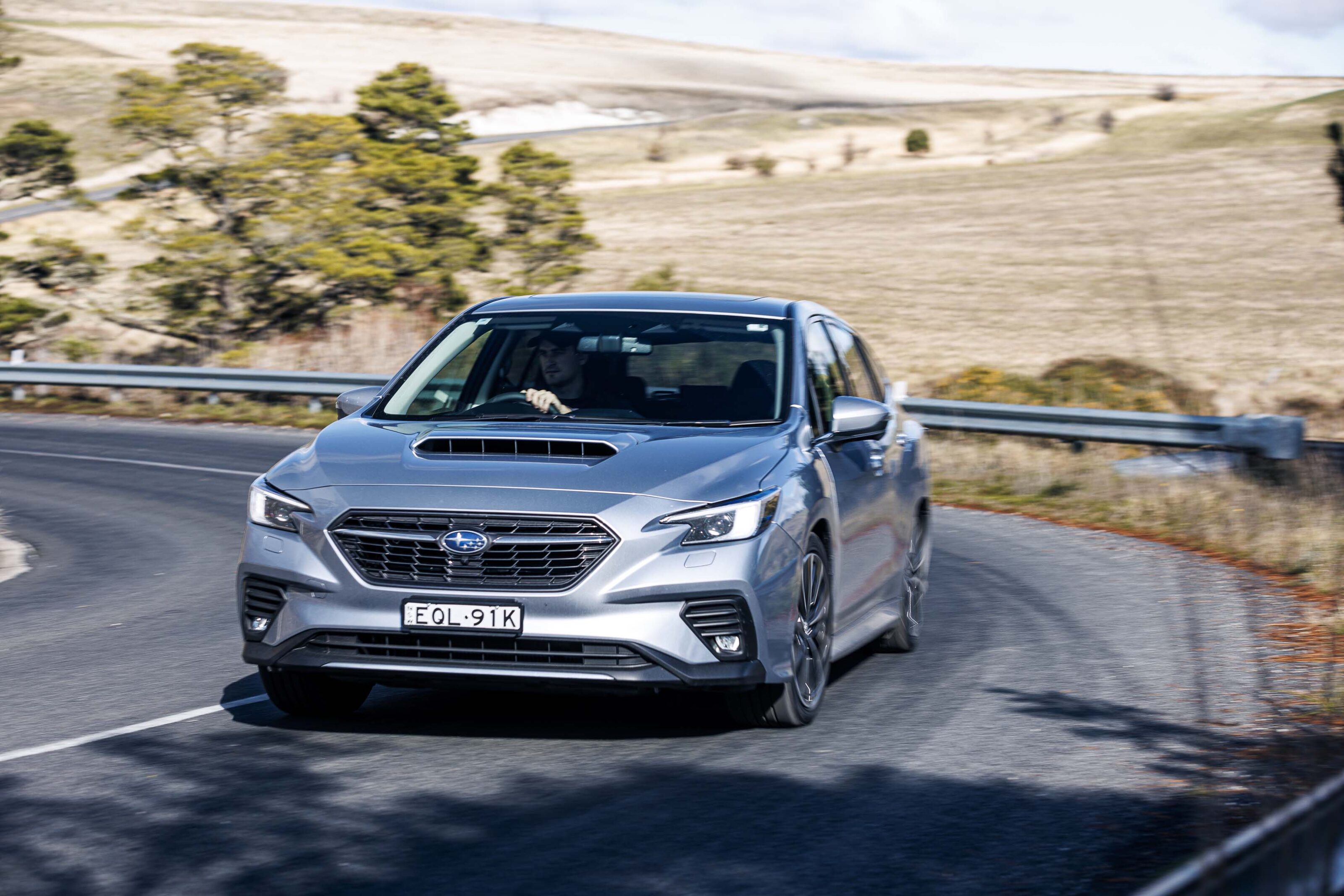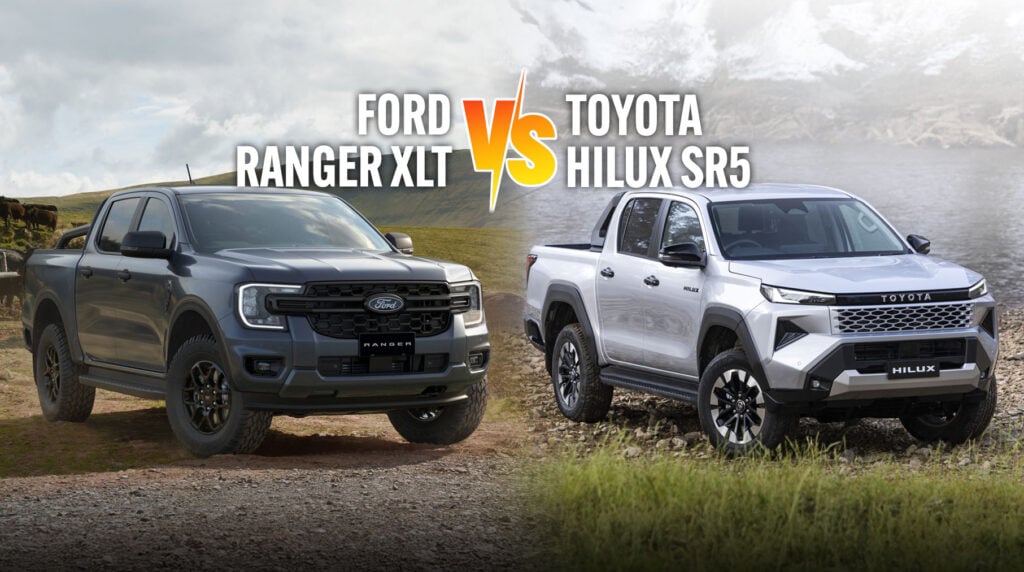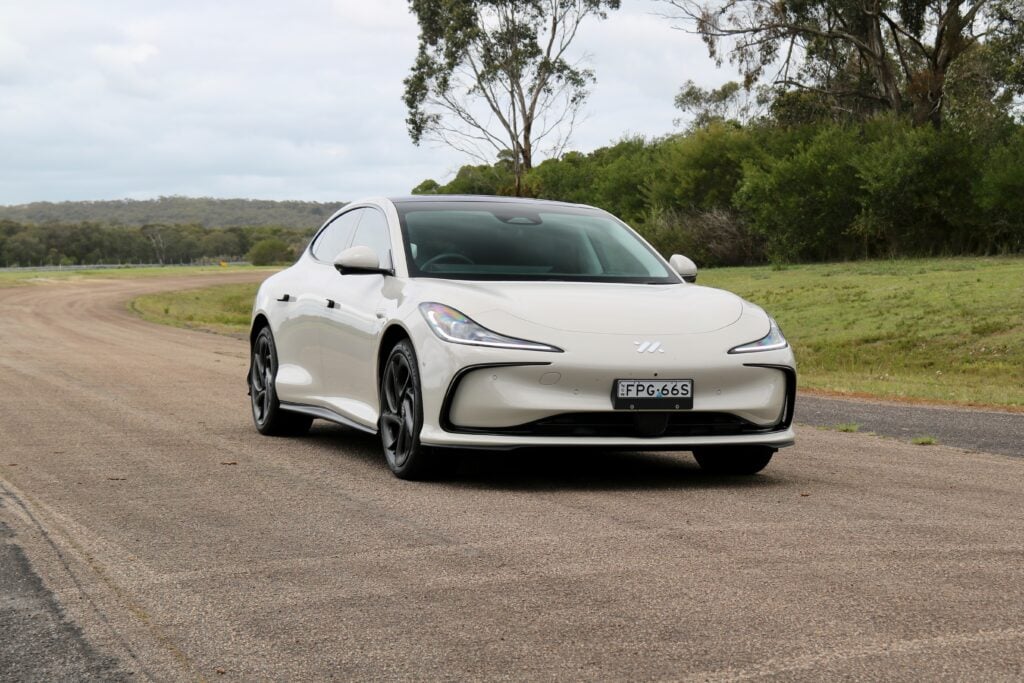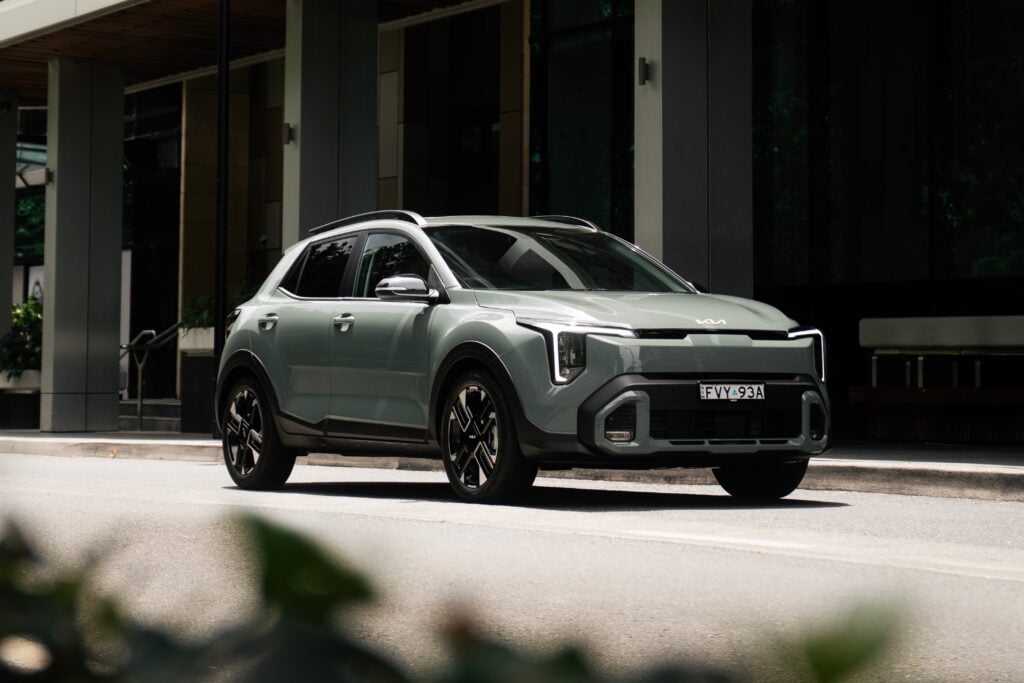Score breakdown
Things we like
- Practicality and performance balance
- Excellent brakes
- Hot wagons are cool
Not so much
- STI version is gone
- No LSD or rear diff disconnect
- Flagship is pricey
It’s been a few months since Subaru dropped the bombshell that it would not be offering a peak-performance STI version of the all-new WRX – to sit atop the flagship tS Sportswagon variant tested here – and that still hasn’t been long enough to fully understand why.
I completely get it if the Japanese brand is reserving the three iconic pink letters to represent its high-performance electric future, but that theory doesn’t explain why STI’s petrol era isn’t sent out in one last hurrah with the VB-gen WRX.
After all, there’s no forecast of when the first EV might roll out wearing an STI badge, and the company’s electric foray – the Solterra – won’t hit Australian shores in ‘standard’ form for at least 12 months, so it’s not as if a final petrol WRX STI is going to overlap with a pioneering EV wearing the same badge – whatever that happens to look like.
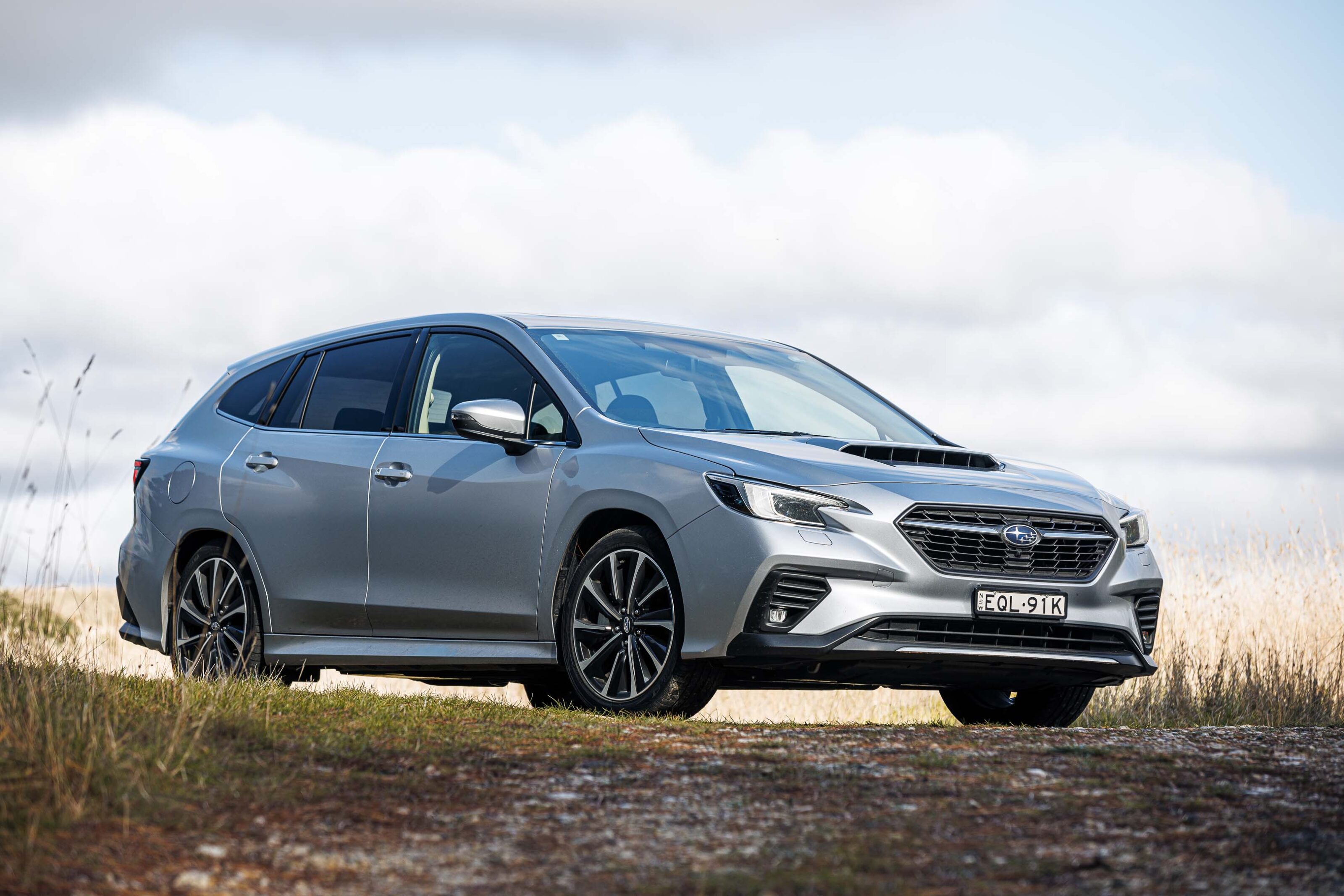
Even though this WRX wagon has an engine almost as large as the previous-generation STI, two out of three STI letters on its boot, and a more aggressive look, it is not the STI some might have been wishing for.
Perhaps it’s Subaru’s close relationship with Toyota? Thrusting a new AWD rally-inspired performance car into the market just when another – the GR Yaris – is enjoying the limelight (not to mention next year’s GR Corolla), might upset the friendship between Subaru and a much bigger ally.
If there’s any truth in this then it seems a bit mean and controlling of Toyota to prevent the creation of a cult favourite sedan that’s unlikely to cannibalise sales from a pair of three-cylinder hatchbacks, even if the respective brands did once bump gloves in the forest.
Or maybe Subaru is feeling the growing pressure to reduce overall corporate emissions, particularly in the US, where a variant known for its thirst would be somewhat defiant in the face of carbon reduction incentives?
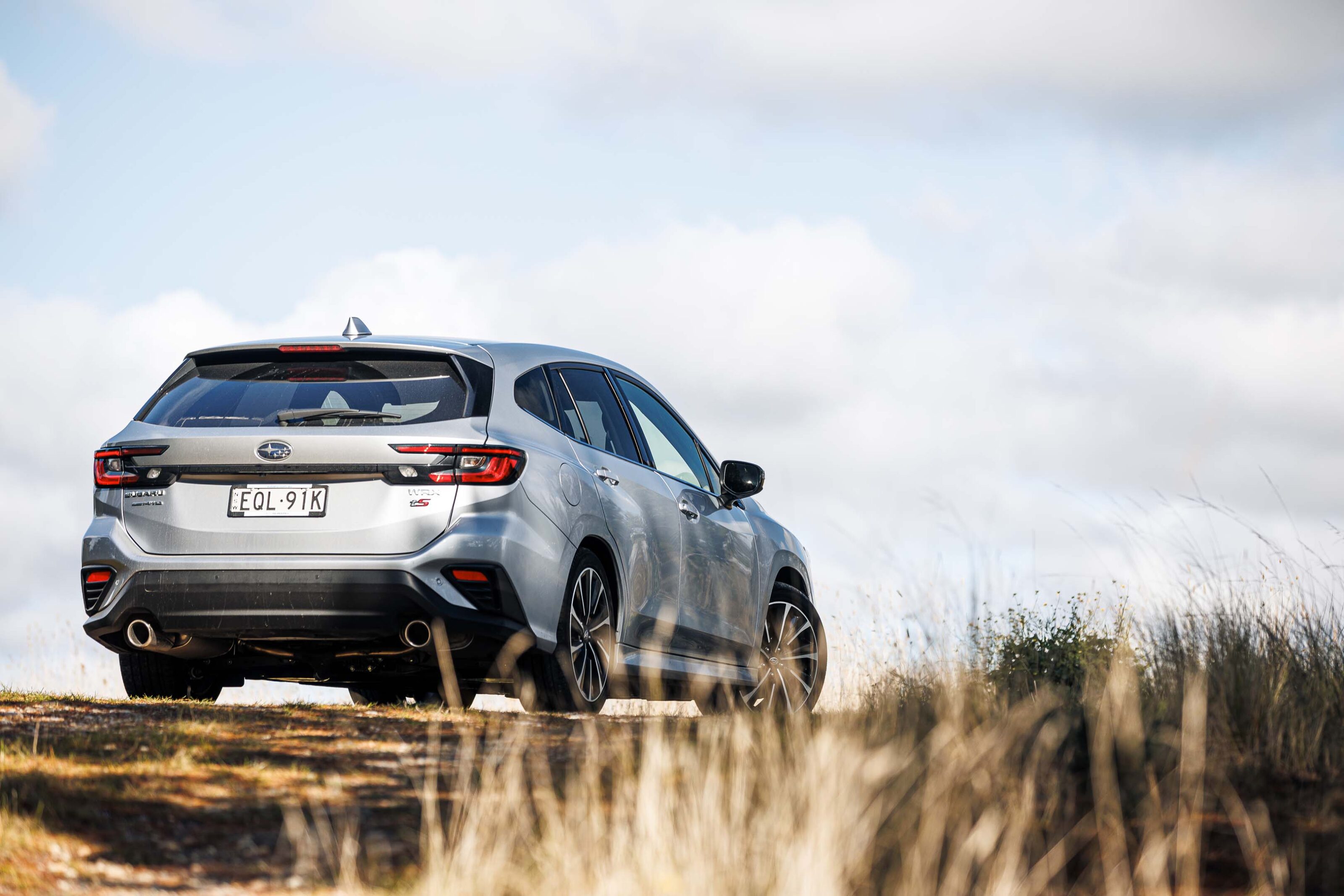
That theory would seem contradictory to the company’s actions after it introduced a second generation of BRZ that actually increased its emissions compared with the first.
Perhaps the WRX STI is the sacrificial goat and now, by default, the G.O.A.T?
The sting of losing an automotive icon is made no more bearable by jumping into the new range-topping WRX and being presented with STI badges on the steering wheel and gauges. It might even be regarded as a little unkind.
That’s because, even though this WRX wagon has an engine almost as large as the previous-generation STI, two out of three STI letters on its boot, and a more aggressive look, it is not the STI some might have been wishing for.
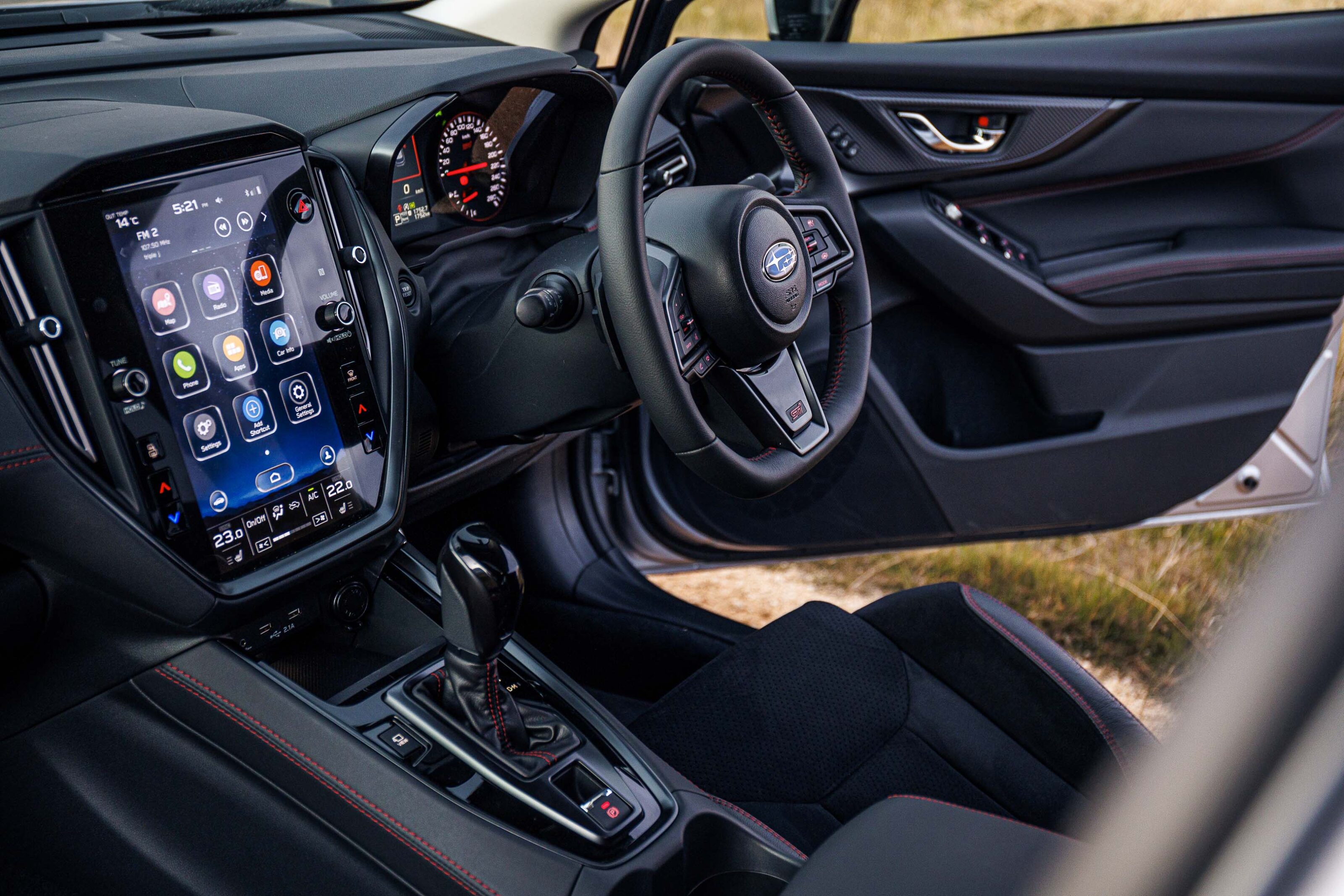
Priced from $57,990 before on-road costs, the WRX tS Sportswagon is about the same price as the previous (manual sedan-only) STI Premium. In fact, the entire WRX range has shifted upward in pricing along with the discontinuation of the Levorg name and a return to the WRX wagon – a move that at least offers some consolation for the absence of an STI.
Delve a little deeper and it gets better still. From the outset, it’s clear where the extra cash is being spent.
Interior feel and quality has taken another step in the right direction with ‘Ultrasuede’ (contains no actual cow) upholstering the seats, and the 11.6-inch portrait screen found in larger Subaru models has now made its way into its smallest wagon.
Compared with the Outback and Forester though, the operating system seems faster in its various functions.
Android Auto and Apple Carplay are supported (wired only) and the eerily effective driver monitoring system also carries over from the bigger siblings. I tried to catch it out several times but it’s just a bit too good at telling when I am genuinely paying attention or pretending not to.

Add to that, Subaru’s excellent suite of Eyesight driver assistance and safety systems and the standard equipment list is stacking up strongly. Sadly, a head-up display is still not offered – a more basic flashing warning light is in its place as a reminder.
As an additional sweetener, the tS and RS also get an impressive Harman Kardon 10-speaker sound system over the entry six-speaker version.
Overall, the WRX cabin feels premium but not indulgent and the layout is well executed. The driving position is also ergonomically good with supportive seats and electric adjustment, while there is more comfort to be found in the second row with space that increases correspondingly with the bigger exterior.
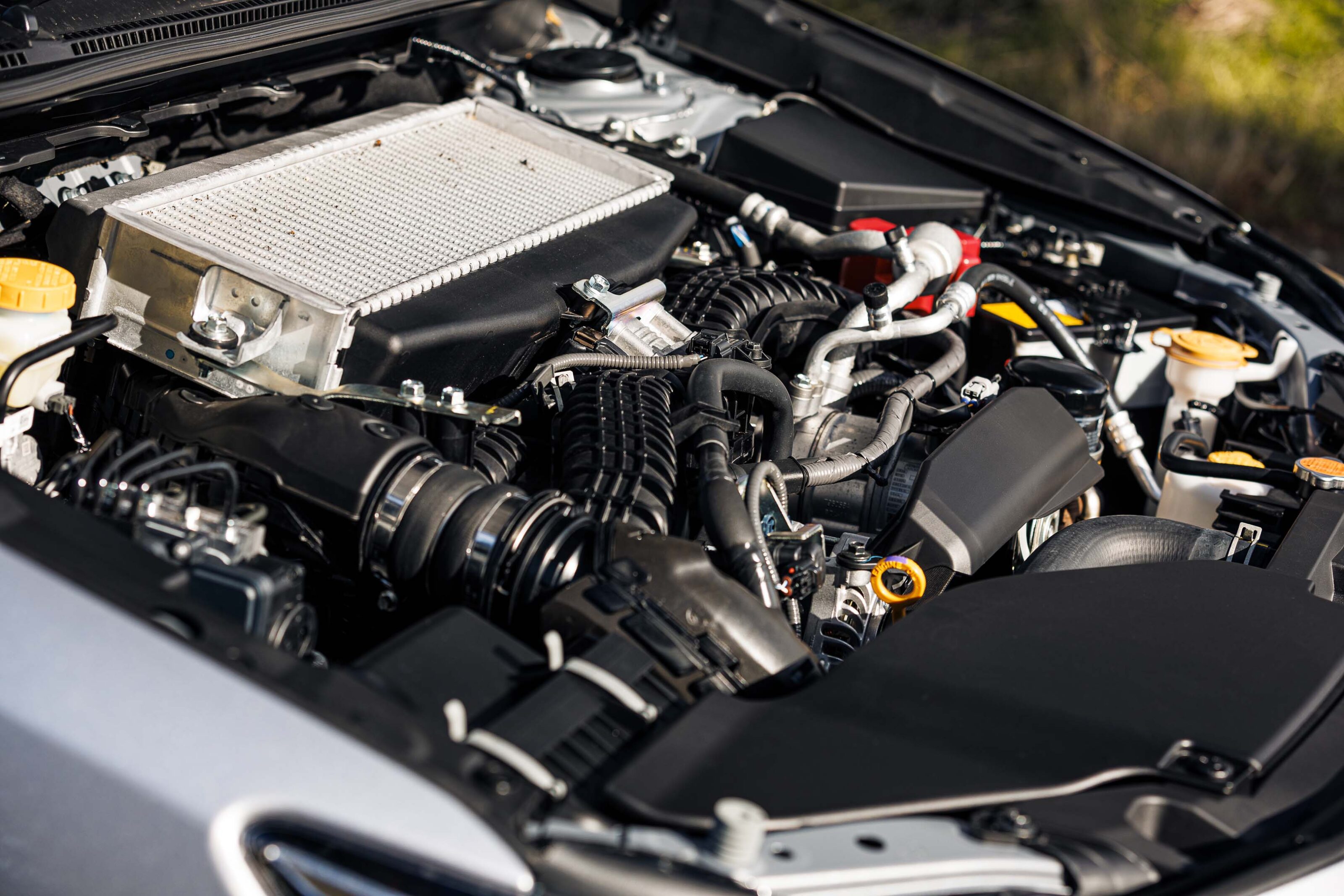
Overall, the WRX cabin feels premium but not indulgent and the layout is well executed.
Long drives in the new wagon are relaxing, with the automatic continuously variable transmission allowing the engine revs to settle down to a low hum and the new Subaru Global Platform providing a good basis for mile-munching long legs. But to cruise around in the WRX is to ignore another of its many likeable facets.
I’m pleased to report that with a return to the big booted wagon, the WRX boot badge is still synonymous with going fast. A little more of the right pedal wakes the charismatic four-pot from its more sedate side but if that’s not enough then a prod of the drive mode button into Sports or Sports Sharp holds the revs in the more purposeful range and sharpens throttle response.
Acceleration is strong, with the permanent AWD system taking care of traction and, while Subaru doesn’t make a claim of how fast it’ll do the milestone zero-to-100km/h dash, we reckon about 6.0 seconds should be possible all day long and in virtually all conditions.
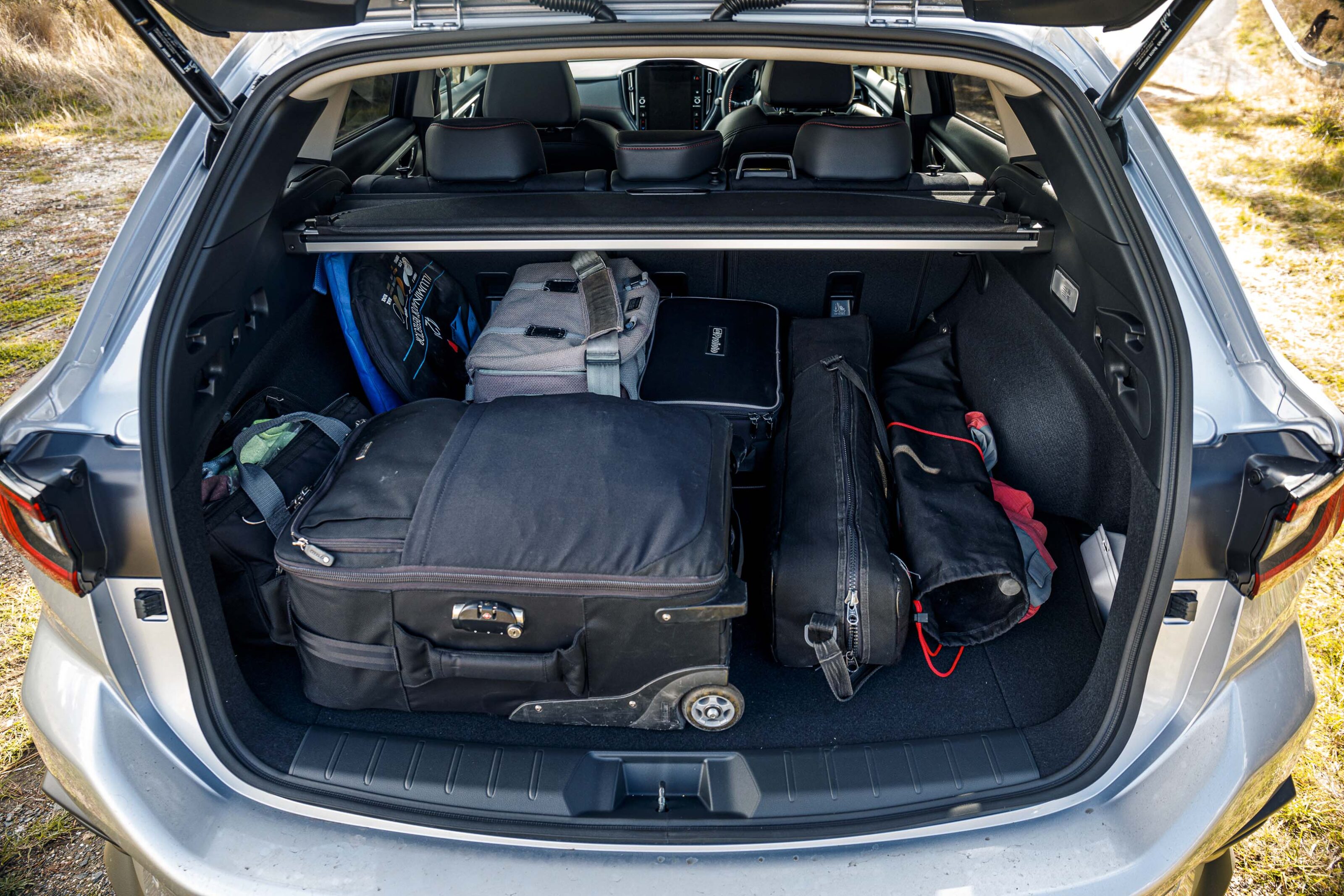
There’s also a satisfyingly firm brake pedal feel for more confidence when scrubbing speed. We had to double-check there weren’t STI-style four-piston fixed calipers in place of the two-piston sliding items fitted as standard.
Speaking of confidence, our test car was supplied with efficiency maximising Yokohama Bluearth GT tyres that offer a good balance of economy-boosting low drag and performance.
While grip levels never leapt out as a concern, there’s probably another two or three degrees of outright fun and performance in a set of Advan rubber or the Dunlop Sport Maxx fitted to WRX sedans.
Perhaps it was the more economy-leaning tyres, but the WRX manages to be pretty good on fuel despite a combination of performance-seeking driving and day-to-day duties.

The official claim of 8.5L/100km is a little high even for a high-performance mid-sizer but our week with the car returned a figure of just over 8.0L/100km – or so the trip computer claimed.
Key to the tS, however, is the fitment of ‘electric control’ adaptive dampers which, by all accounts, transform the WRX wagon from a compromised shadow of its former self and an unwelcome reminder of the Levorg’s rear end, into a competent and perfectly resolved high-performance wagon.
I’ve not yet got my hands on a version of the Sportswagon that has the standard dampers but if the opinion of my peers is anything to go by, stretching the extra few grand for the tS is absolutely the way to go.
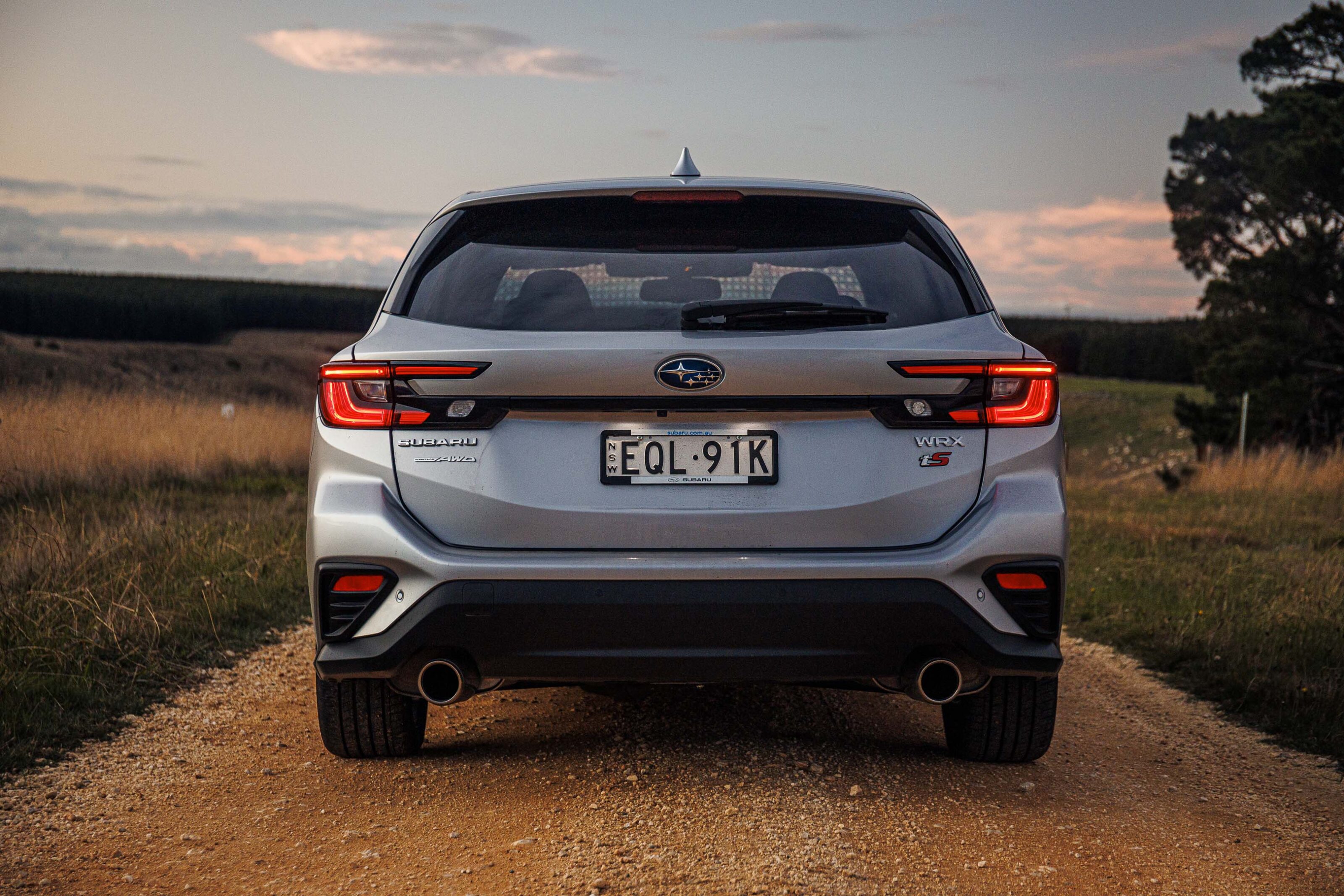
With just me on board, the tS has lovely manners, tackling interesting roads (in horrid conditions) with the surefootedness the WRX badge has earned and deserves.
The nose feels light in the hands but responsive and positive, while the wagon body is not ungainly, responding and recovering quickly. In addition to the impressive feel, brake power is also is worthy of praise with minimal travel and superb stopping performance that’s not over-servoed.
With the adoption of equal-length exhaust manifolds, the classic Subaru beat of the flat-four is unfortunately no more. What little sound remains is a little too muted, detracting from the WRX identity that many admire, but the advantage is in throttle response and minimised turbo lag.
I’ve not yet got my hands on a version of the Sportswagon that has the standard dampers but if the opinion of my peers is anything to go by, stretching the extra few grand for the tS is absolutely the way to go.
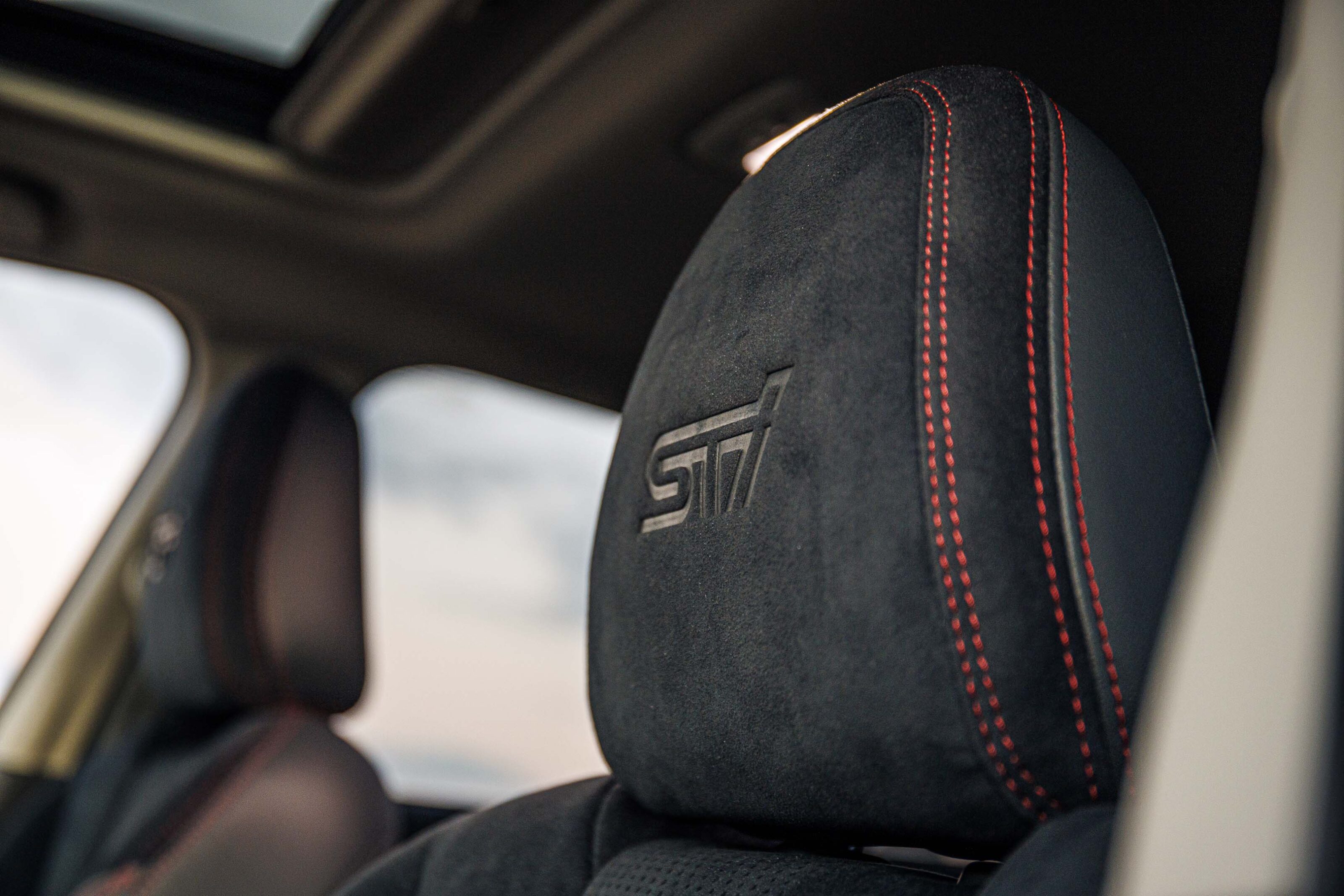
There might not be much more in the way of power compared with the previous 2.0-litre turbo (and at 350Nm, no extra torque), but delivery of all 202kW is more accessible.
Most importantly, it feels swift as a WRX should.
A six-speed manual is available in the base WRX and mid-spec RS sedans, but a CVT automatic is the only option for the wagons. While that type of automatic might not be synonymous with high-performance cars, there are improvements. Simulated gearchanges are even more convincing and their responsiveness and aggression – especially in Sport mode – are excellent.
Perhaps the only black mark against its performance credentials regards Subaru’s trademark AWD system. Like the previous version, a variable centre differential divides front to rear torque split but the front and rear differentials are no longer limited-slip units, with Subaru opting for its VTD electronic torque vectoring system on the automatics.
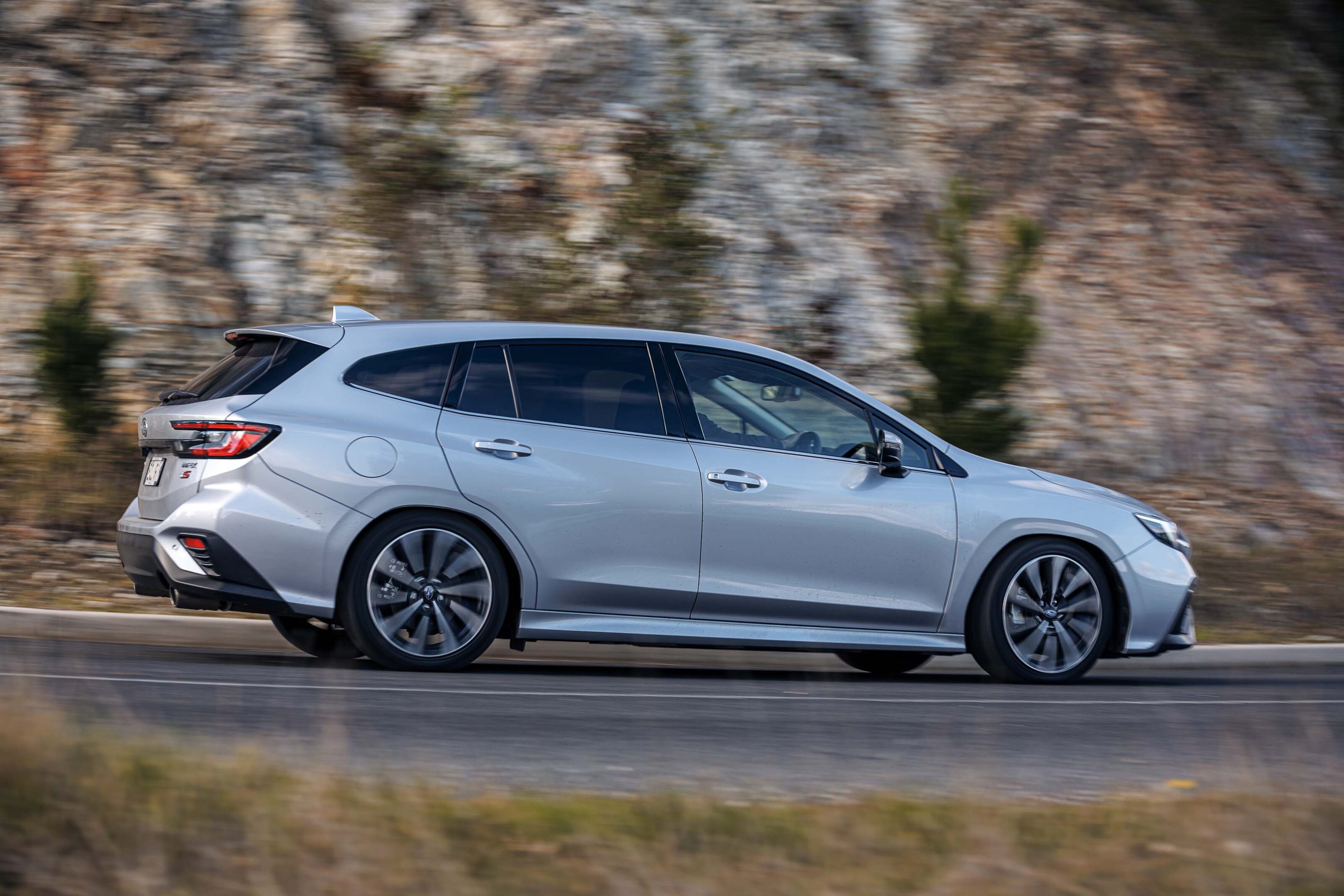
And while the previous-gen car had a rally-inspired manual handbrake with disconnecting rear diff for expert handbrake turns, the feature is gone in the new version – and a little of the car’s heritage goes with it.
Loaded up with four people for an airport run, however, reveals the tS Sportswagon’s true versatility. With almost 500 litres of boot at your disposal, an extended wheelbase and an overall increase in dimensions (except for a slight reduction in height), the wagon is immensely accommodating.
Wagon value confirmed: Grunt to haul the full load is prodigious and the adaptive dampers are beautifully tuned to handle extra mass on-board.

A simple way to describe the WRX tS Sportswagon user experience is that it’s very easy to forget you’re not driving an Outback. That is, until you decide to use more than half throttle or turn into a corner a bit quick. Imagine all of Subaru’s headline tech and comfort, condensed into its smallest and highest-performance AWD.
The new-generation WRX is the most versatile in the moniker’s history, but it comes at a cost of just a little aggression.
If a new STI was in the pipeline, the new WRX would make perfect sense – especially in wagon form. It might not have the raw edge for those who have associated the fabled boot badge with uncompromising pace for 30 years. But the new version is an altogether more mature and refined iteration, with a decent performance punch that honours one of Subaru’s most coveted models.
The new-generation WRX is the most versatile in the moniker’s history but it comes at a cost of just a little aggression.
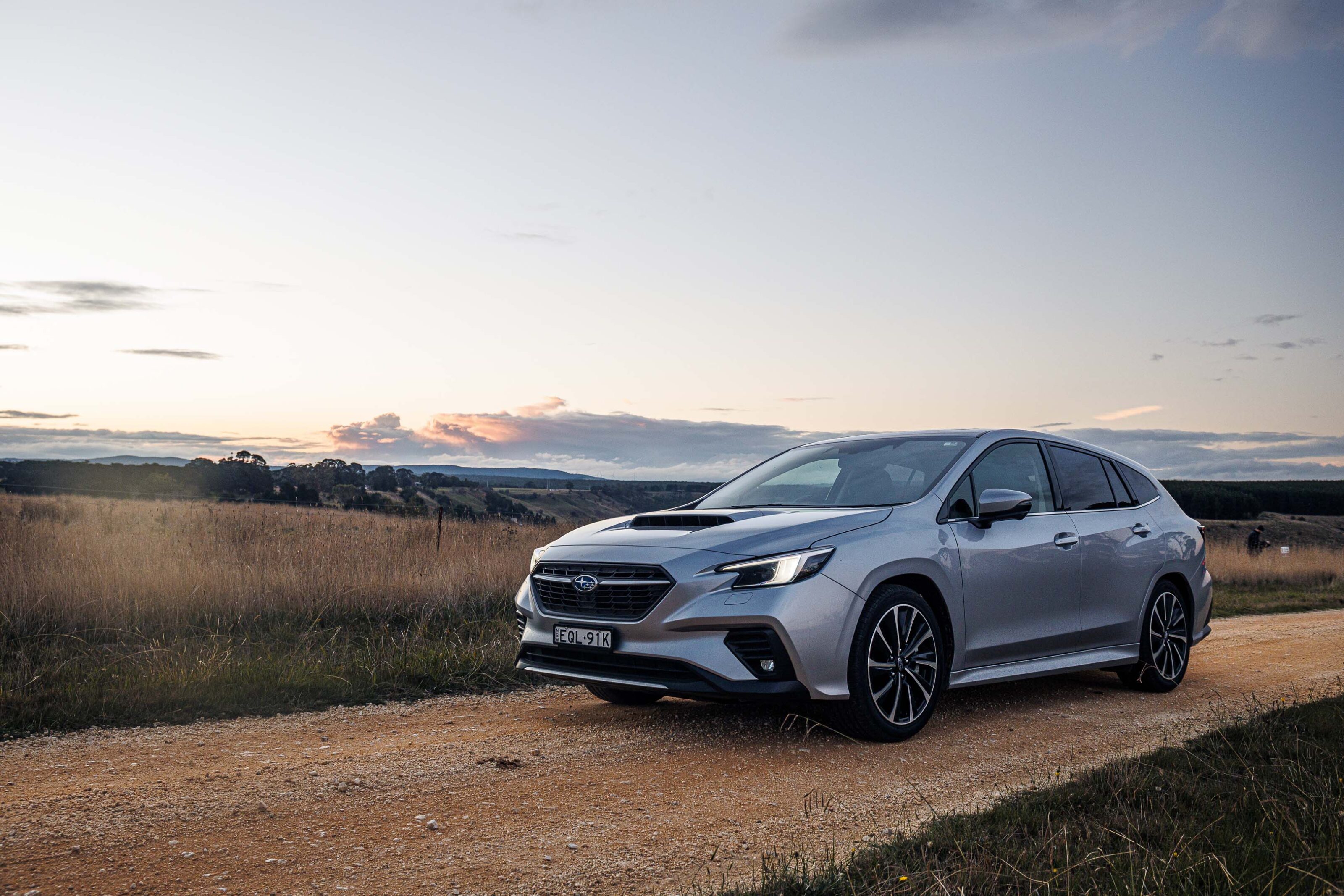
The top-shelf tS Sportswagon exemplifies this.
Grip levels, acceleration and driver involvement are typically WRX but those attributes are bundled in with never before seen levels of quality, sophistication and equipment for a version of the WRX that has never looked as accomplished.
VERDICT
For an audience that has grown up alongside the WRX and is longing for something that can take on family duties as well as holding onto a little nostalgic dynamism, the flagship wagon is perfect, but it won’t cater to a new generation of WRX fans who aren’t ready to make performance sacrifices in the name of practicality and comfort.
And it’s those loyal members of the Blue Army that’ll notice the passing of the STI brand into unclear waters the most.
Score breakdown
Things we like
- Practicality and performance balance
- Excellent brakes
- Hot wagons are cool
Not so much
- STI version is gone
- No LSD or rear diff disconnect
- Flagship is pricey
We recommend
-
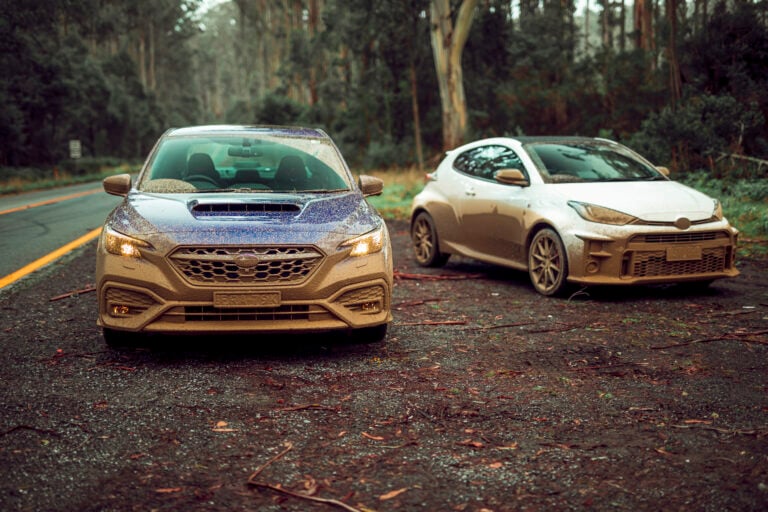 Comparisons
Comparisons2022 Subaru WRX vs Toyota GR Yaris Rallye comparison: Road and gravel!
Subaru’s reborn WRX is quicker, smarter and more luxurious but can it take down Toyota’s WRC inspired GR Rallye? Don your rally clobber, this one’s going to get dirty…
-
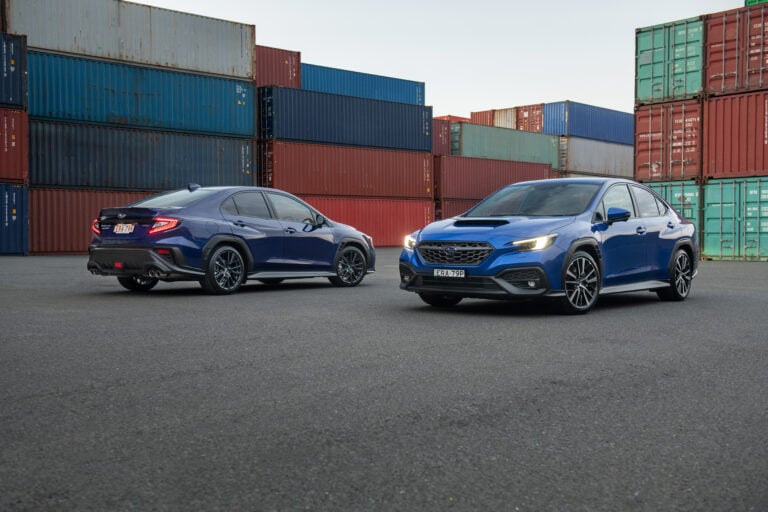 Reviews
ReviewsVideo: 2022 Subaru WRX review
Rally-bred icon delivers pace, grip and premium-ness, but has it lost some of its soul?
-
 News
NewsNew car calendar 2026: All the new cars coming to Australia next year
Here’s the WhichCar by Wheels guide to all the new cars that will launch in Australia in 2026. Check back in regularly for updates...


